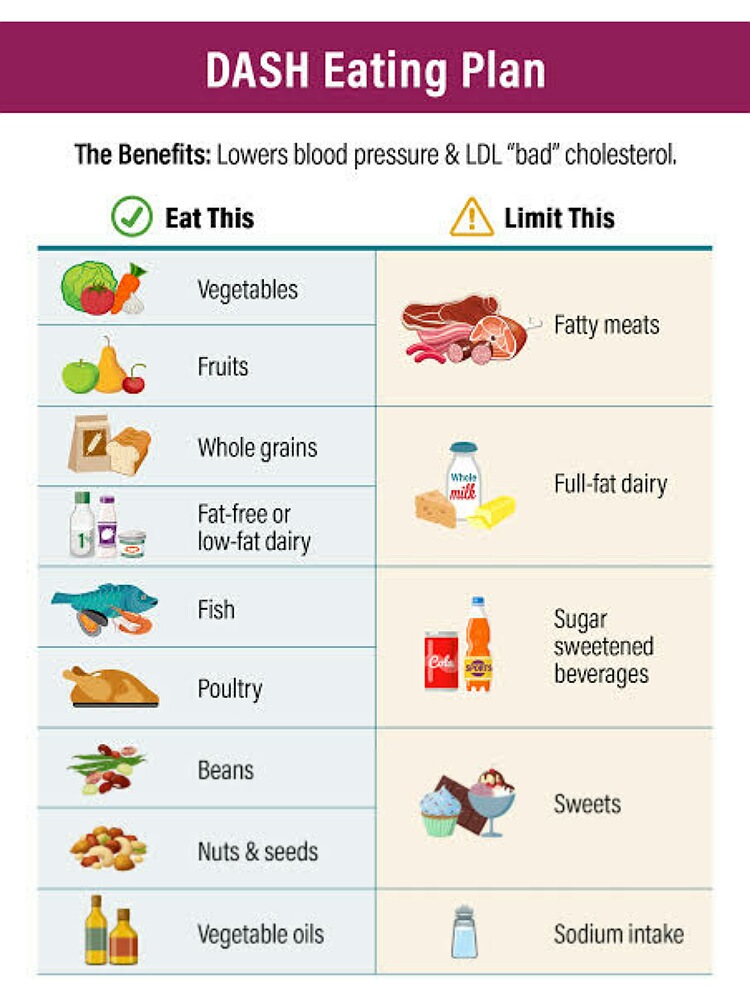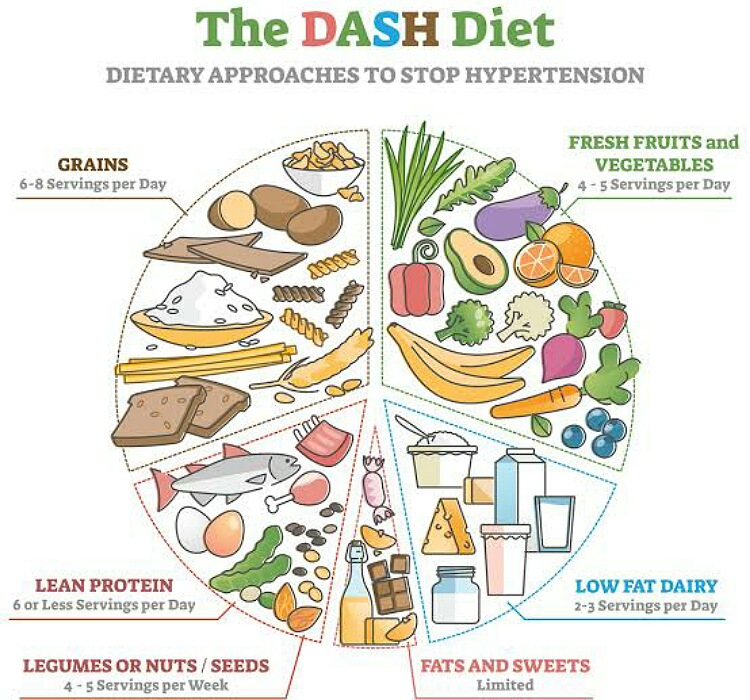High blood pressure or hypertension is increasingly common these days. It affects one in four adults. It is a risk factor for premature death. Causes are many and a faulty diet is one of them. There are certain dietary changes that can help in lowering the heightened blood pressure. This is the DASH diet.
High blood pressure or hypertension
There are certain limits set for the blood pressure readings (upper reading of systolic and lower reading of diastolic). This depends on age and gender besides other factors that determine the normal values for these readings.
When the pressure readings are high, it implies that the heart has to work harder to reach the blood to the capillaries and peripheral tissues and viscera of the body. This can strain the heart and also cause arterial blockages. All of this leads to early deaths due to heart attack and strokes.

Lifestyle and diet both contribute to the risk of having elevated blood pressure. Alcohol, smoking, stress, obesity, lack of exercise and more salt in foods cause hypertension.
DASH diet
The full form of DASH diet is Dietary Approaches to Stop Hypertension. This diet aims to modify the eating habits in order to lessen high blood pressure readings.
Pharmacist Abbas Kanani revealed to Metro UK:
‘it is a specific eating plan created to lower and manage high blood pressure,’
‘It is designed to increase the consumption of foods rich in nutrients like calcium, potassium, and magnesium, which are all proven to lower blood pressure, whilst reducing intake of salt, saturated and trans fats.’
‘It can also help people maintain a healthy weight which reduces the risk of high blood pressure developing.’

Hence, this diet includes fresh fruits, vegetables, whole grains, lean meats with less salt intake. The diet advocates plant based foods for hypertension. Specifically, the diet has lower salt, sugar, fats, and red meat in daily diet. Abbas explains:
‘The low-fat diet is also full of whole-grain foods, fish, lean poultry, fruits and vegetables which helps to lower blood pressure and reduce the risk of developing serious health issues such as coronary heart disease, stroke and kidney failure,’
‘It can also be beneficial to patients with osteoporosis, some cancers, and lower risk of kidney stones.’
Other benefits and side effects
Nutritionist Pauline Cox elaborates on it:
‘If your diet is very poor, lacking in fruit, vegetables and fibre, then DASH is likely to be an improvement on what you’re currently eating,’
Its other benefits include decrease chances of cancer, metabolic syndrome risk is less, and the risk of heart diseases and diabetes type 2 also falls with this diet.

Pauline has some words of caution about this diet:
‘If you are insulin resistant or pre-diabetic, then the higher carbohydrate intake of DASH may not be as suitable for you,’
‘When an individual has insulin resistance, their ability to mop up blood glucose from the bloodstream following a meal and usher into the cells for fuel is reduced.’
‘This results in raising blood glucose levels, followed by a rise in insulin levels. Over time, chronically elevated insulin has a negative impact on the cells and tissues of the body, particularly the cardiovascular system.’
‘When blood vessels are exposed to insulin in small amounts, there is a vasodilating effect, a relaxation of the blood vessels.’
‘However, when the blood vessels are exposed to chronically elevated levels of insulin, as with insulin resistance, the blood vessels become restricted, causing an increase in blood pressure.’
Also, read Queen Camilla believes in a balanced, colourful and varied diet!
Some get loose motions and bloating due to high fiber of this diet. People with high potassium or phosphorus should avoid this diet. The diet is expensive and at times hard to follow for a person with busy lifestyle. Low fat intake of this diet could also be bad in the long run.
